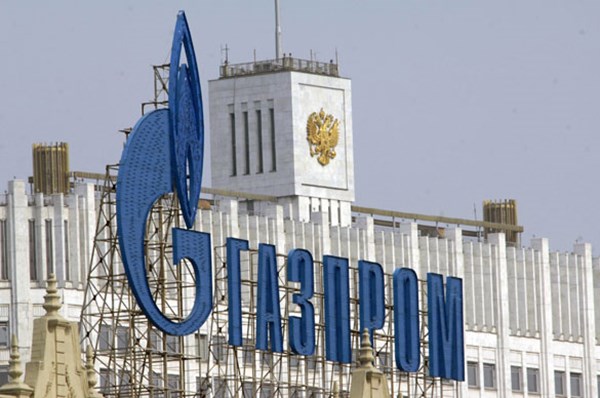Russian Gazprom cancels eurobond placement due to Ukraine's lawsuit
The Kremlin’s gas strategy in the last few years, designed to deprive Ukraine of revenue from gas transit to Europe by replacing the Ukrainian gas transport system with the Nord Stream 2 and Turkish Stream pipelines, appears to be backfiring on Gazprom.
Already faced with a legislative ban on utilizing more than half of Nord Stream 2’s capacity, and having lost one third of Nord Stream 1’s capacity due to a ruling by the European Court of Justice, the Russian gas company has now sustained another blow, losing the ability to borrow money on the European debt market.
Citing an informed source, the Interfax news agency reported that Gazprom has canceled its placement of Swiss franc-denominated eurobonds that was scheduled for this week. The placement is part of the foreign borrowing program through which the company plans to raise $11 billion.
The placement was called off as a matter of urgency. On Monday, Gazprom sent potential investors a prospectus, hoping to conclude the deal by the end of the week, but by Wednesday all of the plans had been canceled.
The risk arose that the funds raised by Gazprom would be immediately frozen in connection with a lawsuit in which the Stockholm Arbitration Institute awarded Naftogaz $2.6 billion for a gas transit shortfall. This was the conclusion reached by the legal experts who were organizing the deal, the source told Interfax.
Gazprom was forced to suspend its foreign borrowing program last year too, when Naftogaz filed claims to enforce the collection of its dues.
In order to gain time, Gazprom appealed the courts’ jurisdiction, claiming that European governments are not authorized to seize assets on the basis of the Swedish Arbitration Institute’s ruling. While its appeals were being considered, Gazprom was able to sell €1 billion in eurobonds in November 2018 and another $1.25 billion in February 2019.
However, in June, Gazprom’s appeals were dismissed by the Amsterdam Court of Appeal and a Luxembourg district court. The latter ruling was particularly painful to Gazprom, since its subsidiary Gaz Capital SA, which it used to place foreign currency bonds, is registered in Luxembourg.
In response, Gazprom decided to transfer its eurobond program to the UK, because in May the High Court of England and Wales suspended the enforced collection of funds from Gazprom for Naftogaz.
However, Gazprom did not manage to hide in England’s jurisdiction either. Legal experts could not guarantee that the raised funds would be safe from seizure, the source told Interfax.
As a result, Gazprom’s foreign borrowing program, which was drastically enlarged from $4.64 to $11.3 billion in autumn, is now in jeopardy.
Gazprom finds itself with a cash gap as a result of decreased gas prices and exports to Europe. At the end of the second quarter, its capital construction costs exceeded its operational revenue by roughly $857 million.
The Russian gas monopoly will be forced to live with this budget gap at least until 2021, predicts Sberbank CIB. For the year, the company has planned around $20.66 billion in capital investments. With an operating cash flow in the region of $16 billion, it will not be able to cover the needed amount.
The experts at Sberbank CIB predict that Gazprom will not receive enough for its investment programs in 2020 and 2021, which require $16.59 and $19.49 billion respectively.
Apart from borrowing, Gazprom does have non-debt sources it can tap to cover the budget deficit, notes Sberbank CIB analyst Alexey Bulgakov. The company has a “cash pillow” of 1.05 trillion rubles, worth about $16.41 billion, in bank accounts and deposits, and it could also sell treasury stocks.
